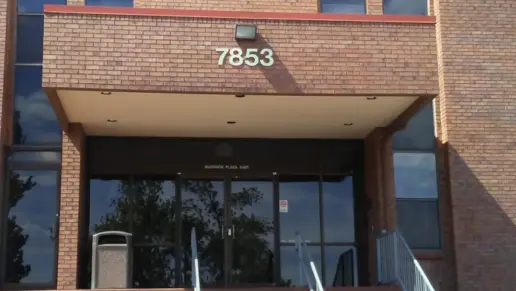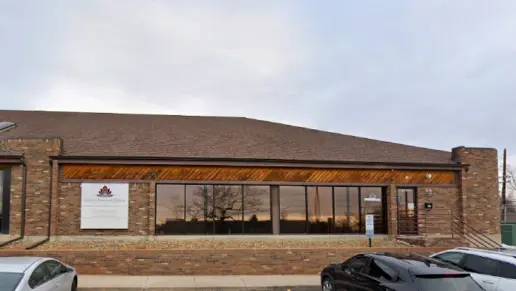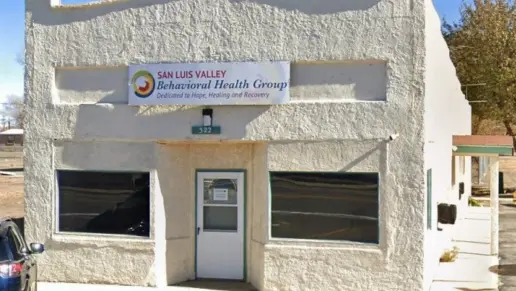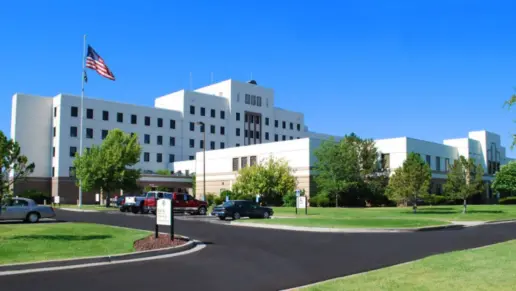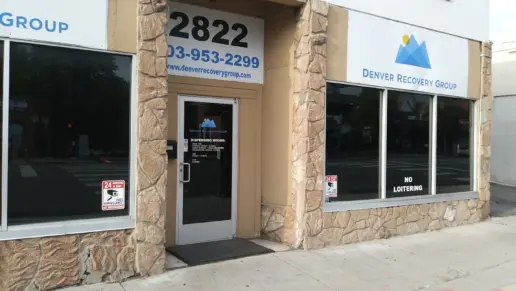About Mental Health Center of Denver – David House
Mental Health Center of Denver David House was a substance abuse and mental illness treatment center in Denver, Colorado. They’ve since merged with WellPower, but this specific location has closed. However, WellPower still offers substance abuse and mental health treatment for people of all ages at other locations throughout the state.
WellPower has specialty bilingual programs for people who speak Spanish. They offer financial assistance and won’t turn you away if you can’t afford treatment. They also accept some commercial insurance plans as well as Medicare and Medicaid.
Course Correction in the Corrections System
WellPower extends its services to those currently involved in the justice system. This includes mental health care and drug and alcohol addiction treatment. Despite how behavioral health and addiction can contribute to recidivism, these services aren’t always easy for those who are incarcerated to access.
These services include multiple therapeutic approaches and curriculums to better get at the underlying traumas behind these issues. They also include a family therapy option so you and your loved ones can recover together.
Intensive Support for Adults in Denver
This location had several intensive outpatient options to suit diverse needs. In addition to the recurring therapy and counseling sessions you’d expect from outpatient care, they provided additional help for supporting other areas of your life. These included vocational and housing support, two pillars of maintaining sobriety in recovery.
The extra help is a great way to fill in the gaps you know are there and to identify what you may not know is missing from your recovery plan. Staff would work with you to spot what you needed and how you could get those resources in your community.
Specialty Care for Individuals Who Are Homeless
People who are homeless are at a high risk of relapse given the lack of stability in their day to day lives. At WellPower these individuals can benefit from all of their support services, getting extensive support and preparation for post treatment life. This ensures that anyone, regardless of how complex their needs may be, can get the help they need to live a happy and productive life.
Rehab Score
Accepted Insurance
Other Forms of Payment
Medicaid is a state based program that helps lower-income individuals and families pay for healthcare. Medicaid covers addiction treatment so those enrolled can use their coverage to pay for rehab. When a program accepts Medicaid the client often pays very little or nothing out of their own pocket.
Private insurance refers to any kind of healthcare coverage that isn't from the state or federal government. This includes individual and family plans offered by an employer or purchased from the Insurance Marketplace. Every plan will have different requirements and out of pocket costs so be sure to get the full details before you start treatment.
Self-pay involves paying for treatment out of your own pocket. You can use savings or credit, get a personal loan, or receive help from family and friends to fund your treatment. If you don't have insurance or your insurance plan doesn't cover a specific program, self-pay can help ensure you still get the care you need.
Financial aid can take many forms. Centers may have grants or scholarships available to clients who meet eligibility requirements. Programs that receive SAMHSA grants may have financial aid available for those who need treatment as well. Grants and scholarships can help you pai for treatment without having to repay.
Medicare is a federal program that provides health insurance for those 65 and older. It also serves people under 65 with chronic and disabling health challenges. To use Medicare for addiction treatment you need to find a program that accepts Medicare and is in network with your plan. Out of pocket costs and preauthorization requirements vary, so always check with your provider.
Military members, veterans, and eligible dependents have access to specific insurance programs that help them get the care they need. TRICARE and VA insurance can help you access low cost or no cost addiction and mental health treatment. Programs that accept military insurance often have targeted treatment focused on the unique challenges military members, veterans, and their families face.
Addiction Treatments
Levels of Care
Treatments
Many of those suffering from addiction also suffer from mental or emotional illnesses like schizophrenia, bipolar disorder, depression, or anxiety disorders. Rehab and other substance abuse facilities treating those with a dual diagnosis or co-occurring disorder administer psychiatric treatment to address the person's mental health issue in addition to drug and alcohol rehabilitation.
Mental health rehabs focus on helping individuals recover from mental illnesses like bipolar disorder, clinical depression, anxiety disorders, schizophrenia, and more. Mental health professionals at these facilities are trained to understand and treat mental health issues, both in individual and group settings.
Programs



Clinical Services
Cognitive Behavioral Therapy (CBT) is a therapy modality that focuses on the relationship between one's thoughts, feelings, and behaviors. It is used to establish and allow for healthy responses to thoughts and feelings (instead of unhealthy responses, like using drugs or alcohol). CBT has been proven effective for recovering addicts of all kinds, and is used to strengthen a patient's own self-awareness and ability to self-regulate. CBT allows individuals to monitor their own emotional state, become more adept at communicating with others, and manage stress without needing to engage in substance abuse.
Group therapy is any therapeutic work that happens in a group (not one-on-one). There are a number of different group therapy modalities, including support groups, experiential therapy, psycho-education, and more. Group therapy involves treatment as well as processing interaction between group members.
In individual therapy, a patient meets one-on-one with a trained psychologist or counselor. Therapy is a pivotal part of effective substance abuse treatment, as it often covers root causes of addiction, including challenges faced by the patient in their social, family, and work/school life.
Trauma therapy addresses traumatic incidents from a client's past that are likely affecting their present-day experience. Trauma is often one of the primary triggers and potential causes of addiction, and can stem from child sexual abuse, domestic violence, having a parent with a mental illness, losing one or both parents at a young age, teenage or adult sexual assault, or any number of other factors. The purpose of trauma therapy is to allow a patient to process trauma and move through and past it, with the help of trained and compassionate mental health professionals.





